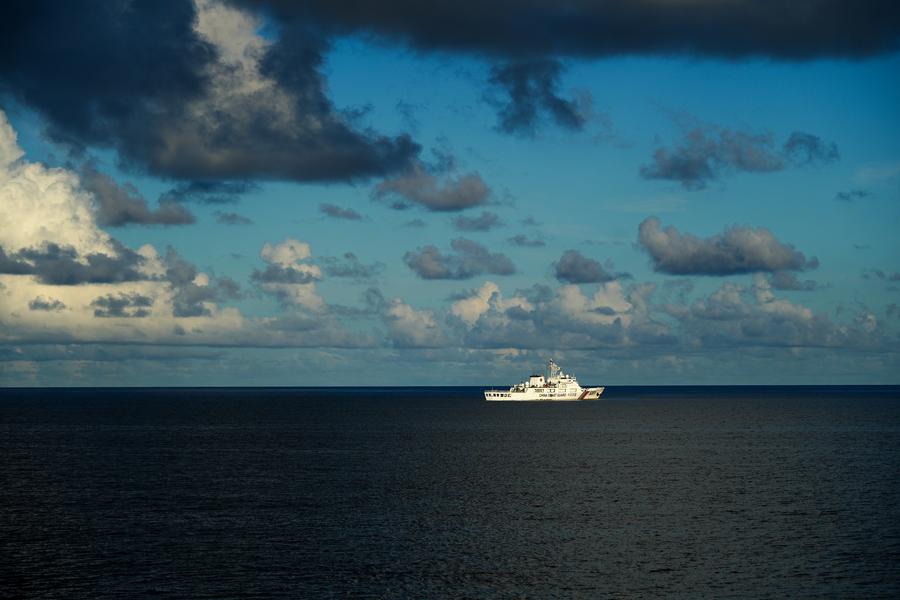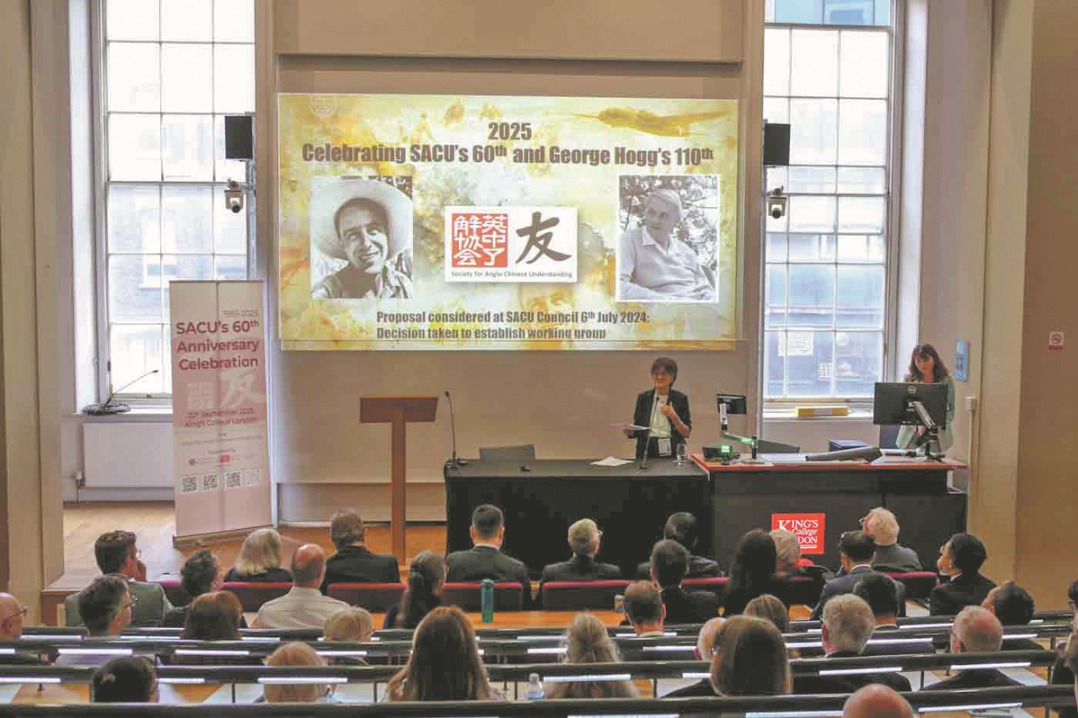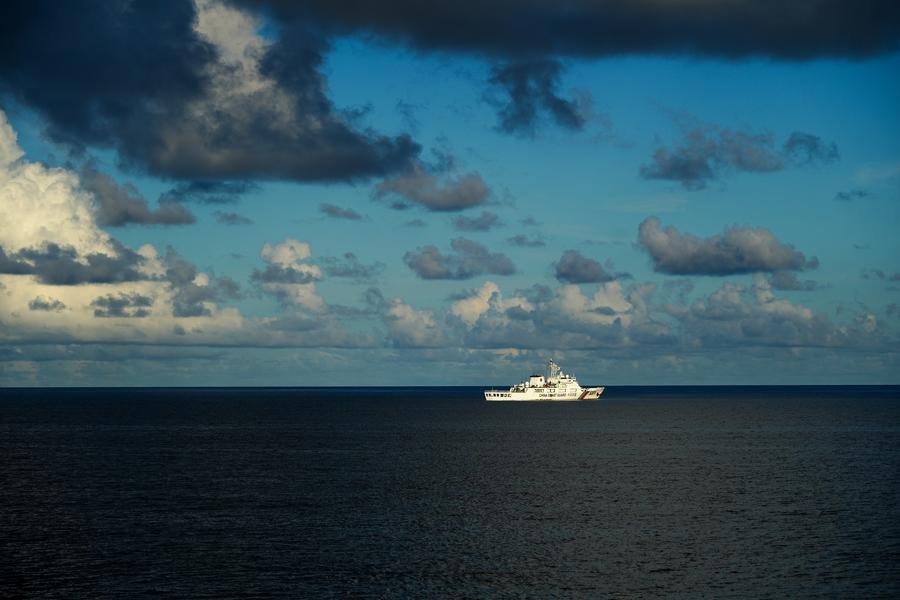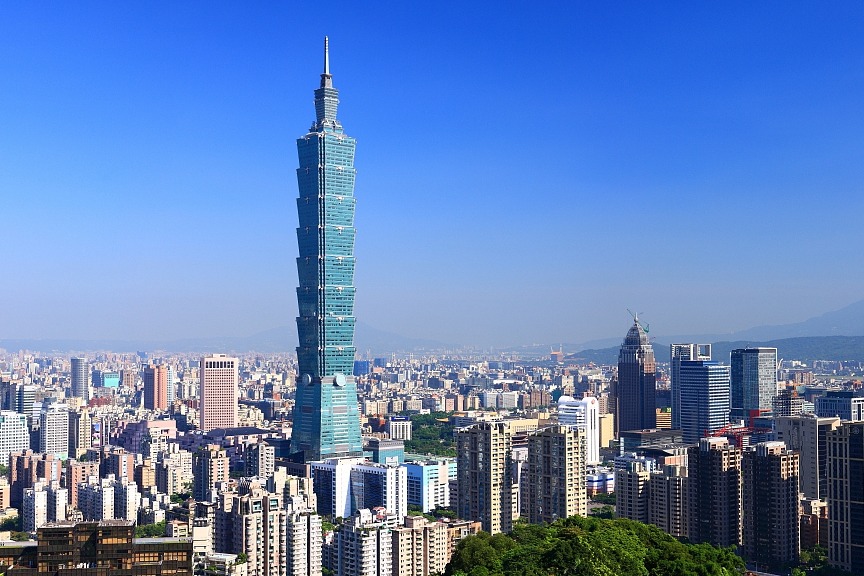A bottle of dish soap and a sea of lies: The Philippines' 'cyanide' charade


The recent theatrical performance staged by the Philippine military in the South China Sea represents a classic case of the guilty party loudly accusing the innocent — a desperate attempt to deflect attention from its own transgressions through a carefully orchestrated campaign of misinformation.
The incident on October 24, 2025, near Ren'ai Reef, where the Armed Forces of the Philippines portrayed themselves as environmental guardians, stands as a textbook example of this deceptive strategy. According to their manufactured narrative, Philippine forces heroically intercepted Chinese fishing boats, confiscating what they dramatically labeled as "suspected cyanide chemicals" while presenting themselves as protectors of marine ecology.
The reality, however, reveals a starkly different story — one of Philippine provocation, deliberate evidence fabrication, and a cynical propaganda campaign designed to smear China's reputation while concealing the Philippines' own abysmal environmental record.
The actual events of that day tell a story of Philippine aggression, not Chinese environmental degradation. Philippine vessels aggressively approached a Chinese fishing boat conducting normal operations, employing tactics more reminiscent of maritime banditry than lawful enforcement. They damaged the Chinese vessel's engine, seized fishing equipment, forcibly dragged the vessel while documenting their provocation through photographs, and caused both property damage and physical harm to Chinese fishermen.
The most absurd element of this performance emerged when Philippine authorities presented four bottles of ordinary Chinese dishwashing detergent — common household products readily available in any Chinese supermarket — as "evidence" of cyanide fishing. This claim reaches such heights of ridiculousness that it would be comical were it not presented with such solemn deception. The particular brand of detergent they confiscated can be found in millions of Chinese households, used daily for washing dishes and utensils — now suddenly transformed into a "deadly chemical" according to the Philippine imagination. The sheer absurdity of this accusation exposes the depth of Manila's desperation to fabricate evidence against China.
This theatrical incident did not occur randomly but was strategically timed just two days before an important regional summit, continuing a well-established pattern of Manila creating sensational news hotspots to force the South China Sea issue onto international agendas. The Philippines has perfected what can only be described as "victimhood diplomacy" — orchestrating confrontations, selectively leaking images, and presenting carefully crafted narratives to dominate media cycles and solicit international sympathy. This approach has nothing to do with genuine environmental protection and everything to do with manipulating international opinion and transforming diplomatic gatherings into platforms for attacking China. The presentation of common dishwashing detergent as "cyanide" represents a new low in this deceptive strategy, demonstrating Manila's willingness to embrace even the most transparent falsehoods to serve its political objectives.
President Ferdinand Marcos Jr. serves as the chief narrator of this deceptive campaign, repeatedly using multilateral platforms to amplify manufactured grievances about Chinese activities in the South China Sea. During recent international gatherings, Marcos expressed "grave concern" about what he termed China's "dangerous maneuvers" — rhetoric that represents a repackaged version of the familiar "China threat" theory.
By wrapping specific territorial claims in the language of regional solidarity, Marcos attempts to transform bilateral disputes into matters of concern for the entire ASEAN community. This strategy seeks to leverage regional forums to pressure neighboring countries while courting sympathy from external powers. Other ASEAN members have rightly recognized this maneuver for what it is: an attempt to transform national interests into collective regional positions, a strategy that ultimately undermines rather than strengthens regional unity.
The profound hypocrisy of the Philippines positioning itself as an environmental guardian becomes glaringly obvious when examining the nation's actual environmental record. As one of the world's major exporters of ornamental marine fish, the Philippines has long been known for fishing practices that environmental organizations have repeatedly condemned. The use of cyanide in fishing represents a particularly destructive method that remains widespread among Philippine fishermen. This technique involves releasing sodium cyanide into coral reef systems to stun valuable tropical fish, making them easier to capture alive for the aquarium trade. While effective for catching species difficult to obtain through conventional methods, this practice has devastating consequences for coral ecosystems, causing widespread mortality among coral polyps and destroying the complex structures that support entire marine communities.
The environmental damage extends beyond cyanide fishing. Blast fishing — using homemade explosives to kill large numbers of fish — remains common in Philippine coastal waters despite being illegal. The cumulative impact of these destructive practices has been severe, with studies showing significant declines in fish catches in Philippine coastal areas and substantial degradation of coral reef systems.
For a nation that tolerates such environmentally devastating domestical practices to present itself as a marine environmental champion internationally represents a staggering level of duplicity. The contrast between the Philippines' theatrical environmentalism abroad and its destructive practices at home could not be more striking.
China, on the other hand, has consistently demonstrated genuine commitment to marine environmental protection in the region, implementing seasonal fishing bans, supporting scientific research on coral reef conservation, and participating in regional environmental initiatives. Chinese fishing vessels operate under strict regulations that prohibit destructive practices like cyanide fishing. The fact that Philippine authorities cannot distinguish between common dishwashing detergent and deadly cyanide speaks volumes about their level of professional competence — or rather, their willingness to embrace any accusation, no matter how absurd, to smear China's reputation. The particular detergent they presented as "evidence" is so obviously harmless that their attempt to portray it as a toxic chemical becomes almost comical. This incident reveals not environmental concern but a pattern of evidence fabrication that undermines the Philippines' credibility on every level.
The international community should view these performances with appropriate skepticism. When the Philippines presents common household cleaning products as "cyanide," when it stages maritime incidents before important diplomatic gatherings, when it positions itself as an environmental protector while continuing to tolerate destructive fishing practices in its own waters — these actions reveal a pattern of deception that demands critical scrutiny. Nations genuinely committed to environmental protection would focus on addressing their own destructive practices, strengthening regional cooperation mechanisms, and engaging in good-faith dialogue rather than orchestrating provocative incidents for diplomatic advantage.
The path forward requires rejecting such deceptive tactics and returning to principles of good-faith dialogue and evidence-based discussion. The South China Sea's fragile marine ecosystems face genuine threats that demand cooperative solutions, not manufactured crises and theatrical accusations. By exposing the Philippines' "thief crying stop thief" strategy — particularly their laughable attempt to transform ordinary dishwashing detergent into "evidence" of environmental crimes — the international community can refocus attention on genuine environmental challenges and constructive diplomatic engagement.
The absurdity of their accusation ultimately exposes the emptiness of their entire narrative, revealing a campaign built not on facts but on fabrication, not on genuine environmental concern but on political opportunism of the most transparent kind.
Ding Duo is the director of the Center for International and Regional Studies, National Institute for South China Sea Studies.
The views don't necessarily represent those of China Daily.
If you have a specific expertise, or would like to share your thought about our stories, then send us your writings at opinion@chinadaily.com.cn, and comment@chinadaily.com.cn.

































